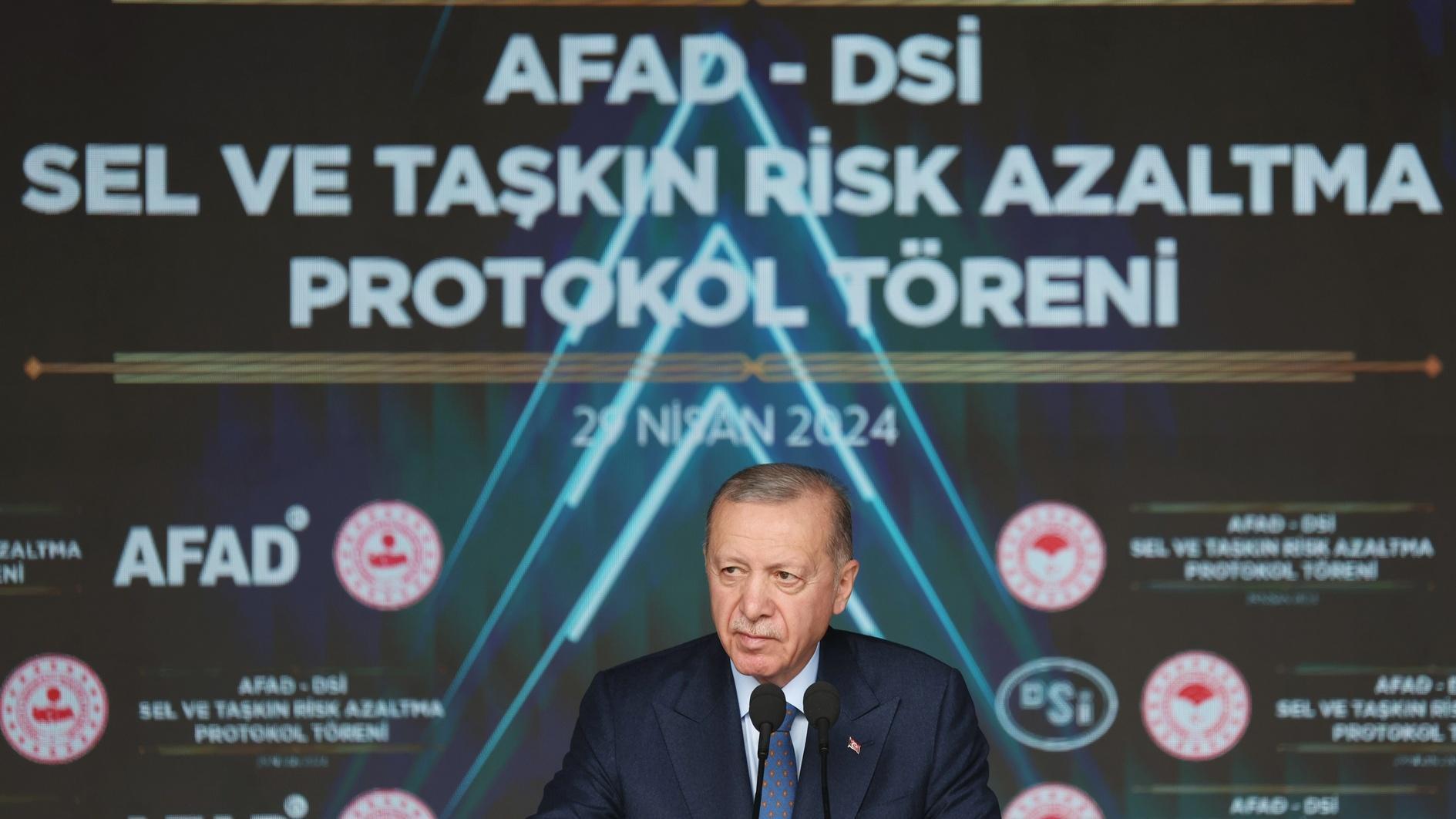Tune change in US’ Turkey politics
U.S. Vice President Joe Biden addressed Prime Minister Recep Tayyip Erdoğan at the beginning of his speech at lunch at U.S. Department of State on May 16, saying, “I have been an admirer and have known the prime minister for a long time.”
Biden also said, “I think he has done an absolutely marvelous job in an incredibly difficult neighborhood.”
The American administration hosted its important guest from Turkey with exceptional attention and a protocol level that only very few foreign leaders enjoy.
The number two person in the American administration, who had praised to the skies the leadership of Erdoğan during that trip, three weeks later, on June 4, conveyed “concerns about the protests in Turkey’s streets. He said, “but the United States stands for certain clear principles in these circumstances: nonviolence from both government and demonstrators; respect for the freedom of assembly and a free and independent press.”
While Biden was making this proclamation at the American Turkish Council’s Washington conference, right next to him Deputy Prime Minister Ali Babacan was listening to him.
Let’s assume it was inevitable for Washington to react regarding demonstrations, why then did the White House feel the need to issue a message on “free and independent media”?
Several news outlets in Turkey outlined the part of the statement that read, “Turkey’s future belongs to the people of Turkey and no one else,” in Biden’s speech, his continuing remarks were not adequately covered. Actually, after saying “But,” he continued, “But the United States does not pretend to be indifferent to the outcome because we firmly believe that countries with open societies, political systems and economies, democratic institutions and a firm commitment to universal human rights, these are the countries that will thrive and be the most powerful countries in the 21st century.”
An important dimension of Biden’s speech was that the U.S. felt the need to emphasize that it cannot stay indifferent to Turkey’s future. When read backward, the message given is that Washington would not stay indifferent to the drifting from universal human rights and democratic values.
Likewise, U.S. Secretary of State John Kerry, right after the events on June 3, told reporters at the State Department, “The United States supports full freedom of expression and assembly, including the right of people to peaceful protest, because that is fundamental to any democracy.” He maintained that his comments were not intended as interference in Turkey’s internal affairs.
Now, it is time to search for answers to this question: How come the Obama administration, which only a short while ago was cherishing Erdoğan, suddenly felt the need to issue democracy messages with such strong content? The administration could have just as well kept the tone of these statements much lower.
There is another important aspect. Turkey’s issues on freedoms of expression and assembly are not new; it was extensively covered in the State Department’s human rights reports issued last April.
At this point, President Barack Obama’s administration has been disabled with a serious coherence problem. Even though Washington has reported these issues, Obama has carefully avoided tackling these knotty topics in his dialogue with Erdoğan. When Obama did not go into these matters, then Erdoğan had a perception like the White House did not pay attention to these matters all the time and consequently on his return from Washington had the opinion that he had a free hand on the American front.
Actually, for quite a long time, there were demands from the American bureaucracy for Obama to bring up these matters in his dialogue with Erdoğan, these suggestions were turned down at the president’s desk. Partially this was because of the closeness Obama felt for Erdoğan but more so because of not wanting to risk their huge strategic interests in Turkey for topics such as democracy.
It seems as if the last Taksim incidents have caused a threshold to be left behind in Washington, which had already accumulated a critical line. They have also caused the top levels of the administration to adopt a stronger discourse against the government.
Also, the ruling style of Erdoğan is increasingly referred to in the American press as “authoritarian” and this may lead to the Obama administration coming under more pressure from the public and Congress in the Turkey file.
As a result, it would not be a mistake to say that the ruling Justice and Development Party (AK Party) government will find a Washington, after these incidents, that will be less shy in its wording about issues regarding democracy.
Sedat Ergin is a columnist for daily Hürriyet, in which this piece was published on June 12. It was translated into English by the Daily News staff.











